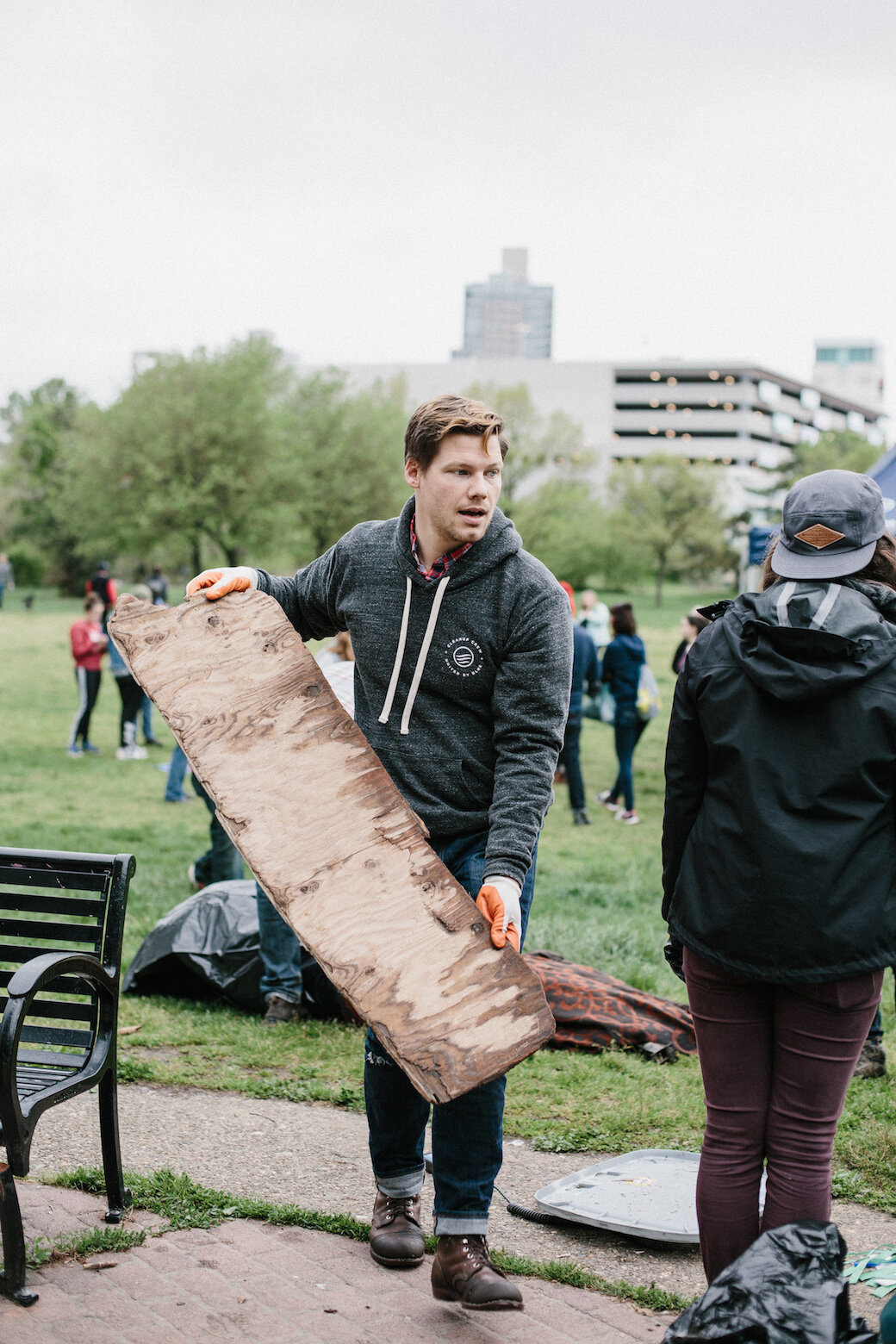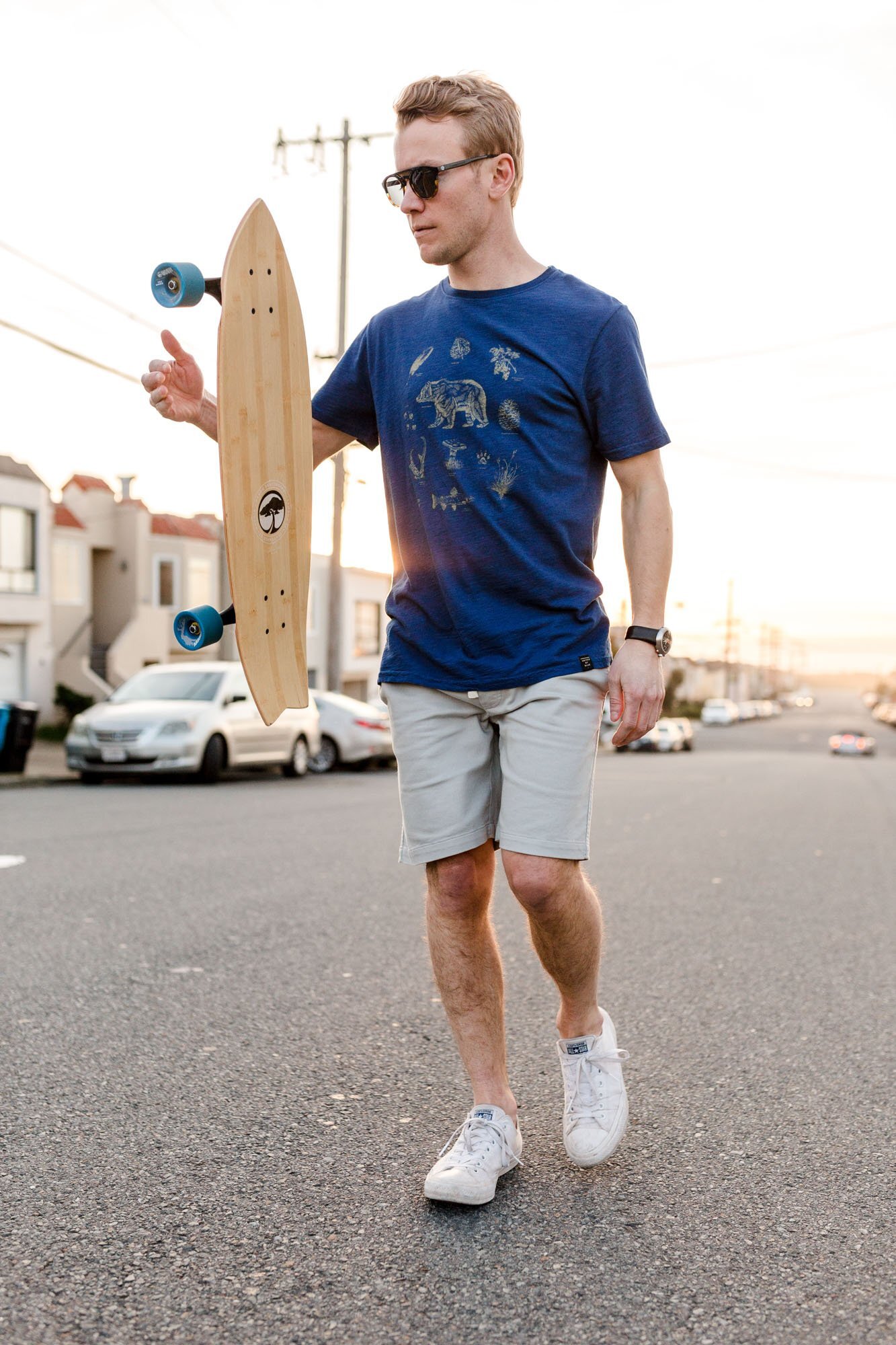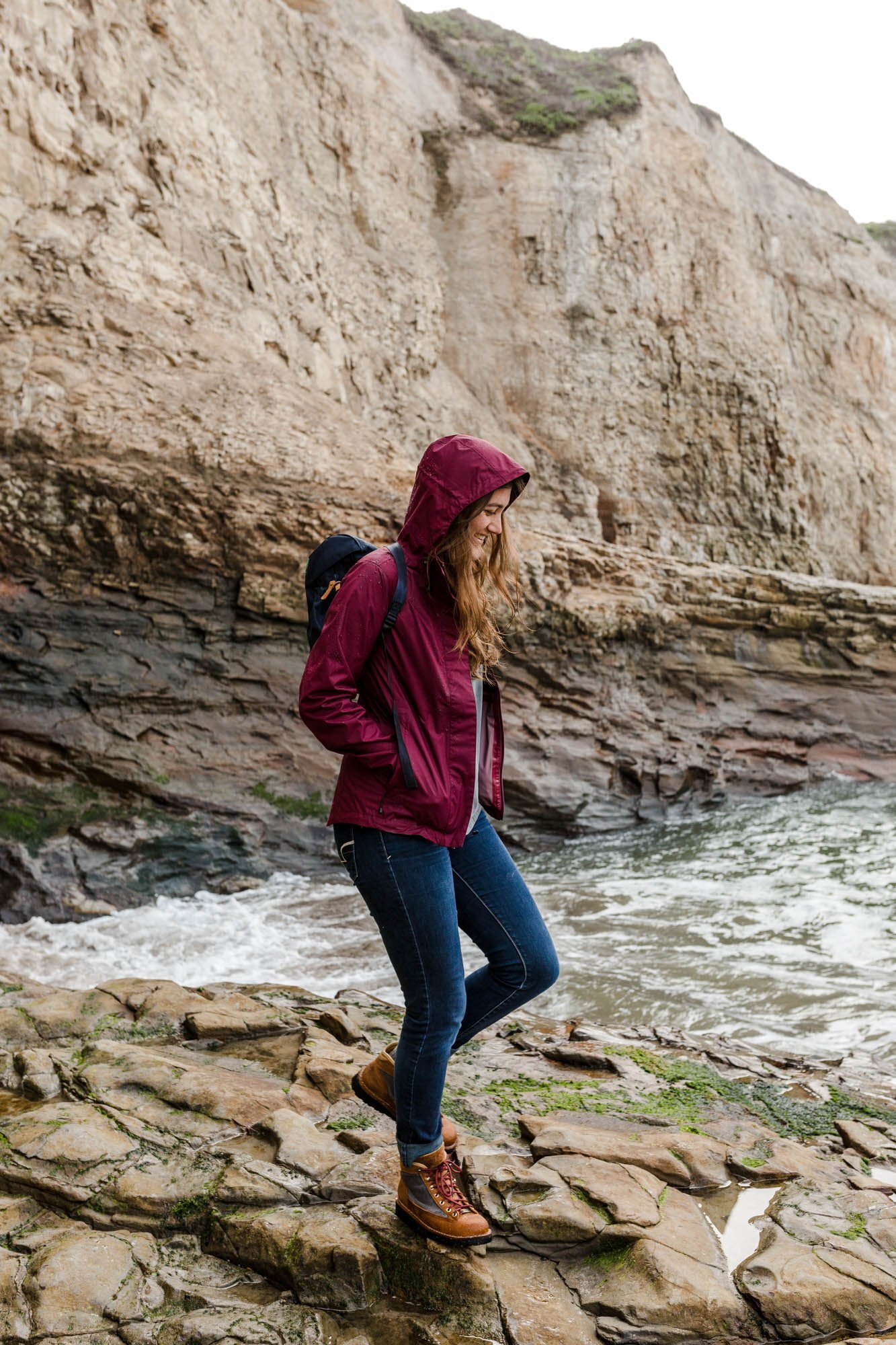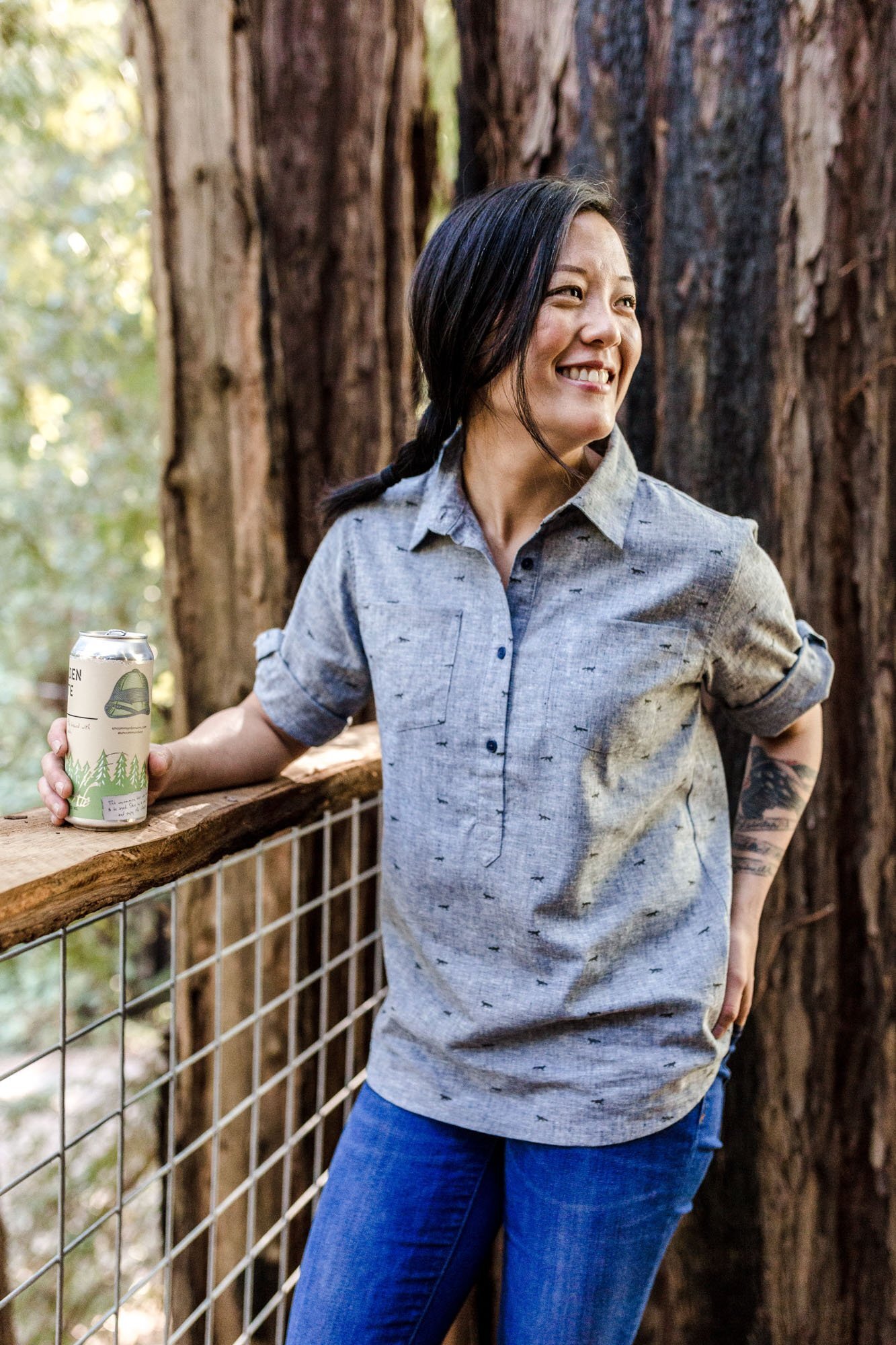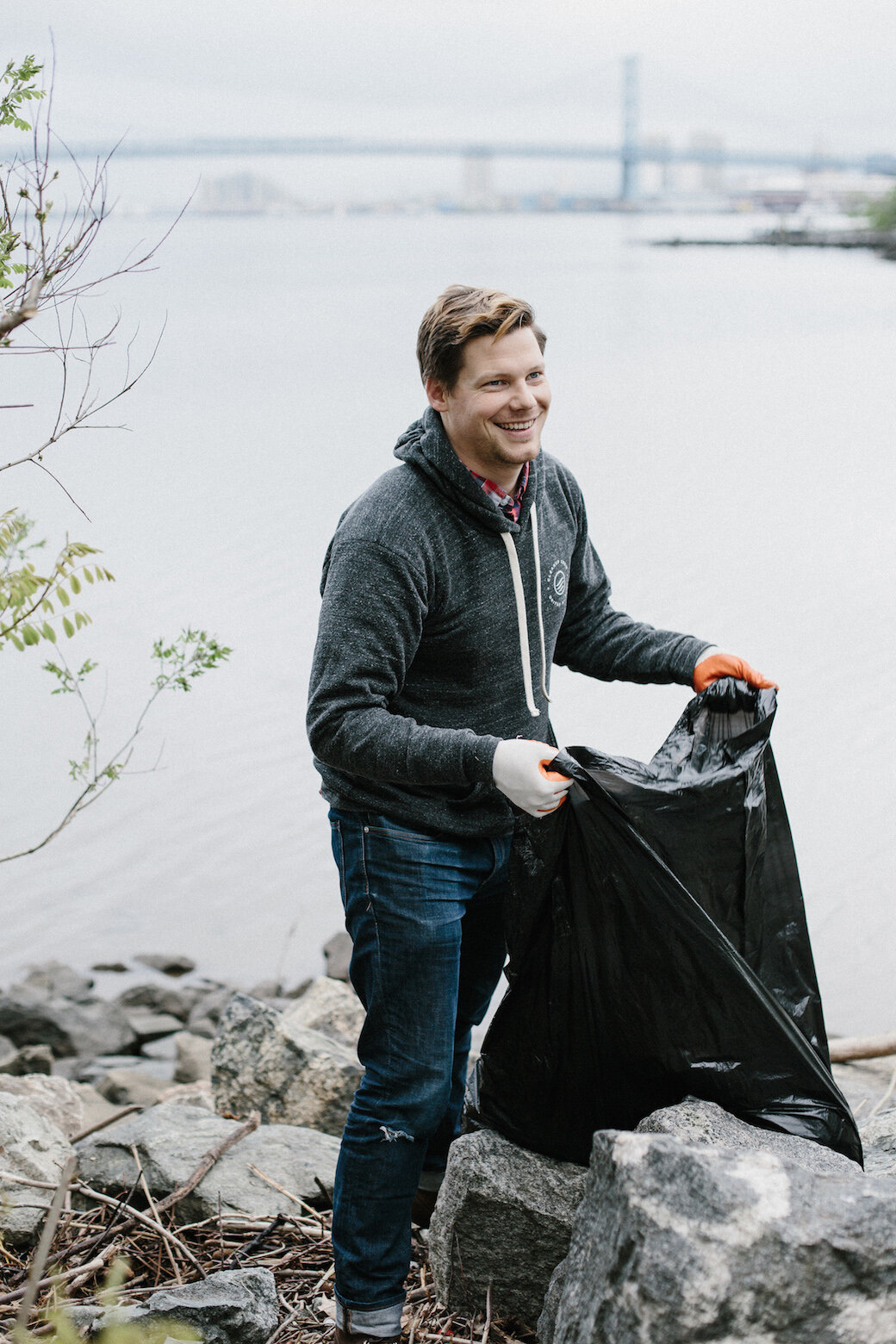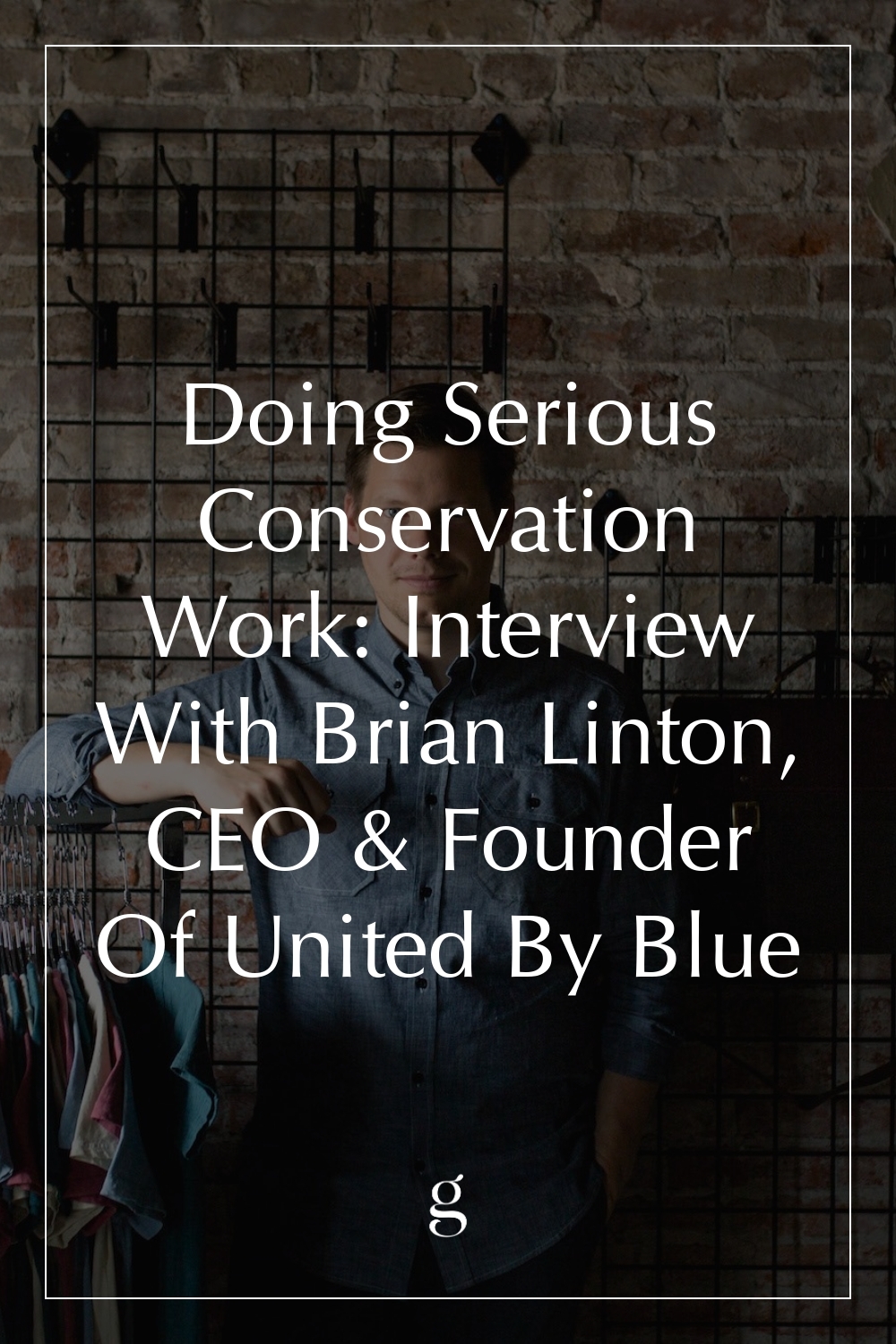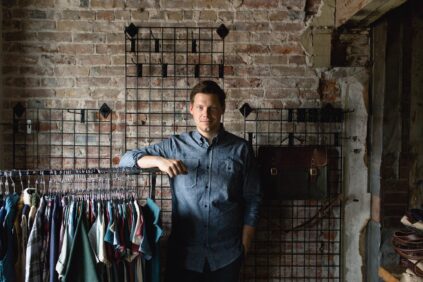
Doing Serious Conservation Work: Interview With Brian Linton, CEO & Founder Of United By Blue
Meet Brian Linton, CEO & Founder Of United By Blue
Brian Linton grew up in Singapore and traveled around the world before building a conscious outdoor apparel brand that with every purchase is removing 1 pound of trash from American waterways. While overseas, he learned firsthand about aquatic ecosystems and the affect ocean plastics and pollution have on them. That passion eventually turned into his brand United By Blue, through which Brian is leveraging fashion to create high quality apparel and accessories for people who love the outdoors.
You leveraged your passion for water to inspire some 10,000 volunteers to pitch into United By Blue’s cleanup effort. How did you settle on this impact model?
“Making an impact is easy! All it takes is a trash bag, a pair of gloves, and an hour of your time.”
It started with holding our first cleanup the week we sold our first t-shirt and sharing with people that making an impact is easy! All it takes is a trash bag, a pair of gloves, and an hour of your time. Rather than simply writing a check, facilitating and encouraging customers to participate in cleanups allows them to see in a very tangible way how their purchase impacts ocean conservation efforts. Keeping the messaging at these cleanups focused on conservation and ways to live sustainably is integral to how we inspire and encourage people to keep coming out to cleanups and to care for the environment.
Creating real change in environmental issues as enormous as water waste is not for the faint of heart. What challenges have you run into as you grow United by Blue’s impact?
United By Blue was built on the notion that a successful outdoor brand can do serious conservation work. This happens not only at our cleanups, but in our materials selection (we always opt for textiles that keep our oceans, air, and soil a little cleaner), throughout our office (i.e. composting, recycling, reducing paper usage, etc.), and throughout our daily lives by encouraging carpooling, public transportation use, and riding your bike. This culture and commitment has helped us achieve our status as a B-Corporation, an accolade we do not take lightly and are constantly working to improve.
The challenge with our mission is not necessarily the environmental issue we are addressing. Coordinating cleanups and picking up trash is an activity that many could do. But why don’t more people do it? Because they lack time and money.
The business model that United By Blue is built on provides both the capital and the time (through dedicated employees) to organize and host beach and waterway cleanups at scale. So the challenge is not in the cleanups, it’s in the business. We have to run a successful, profitable business in order for United By Blue to have a long term positive impact on the environment—without the success of our product, we don’t have the time or money to execute on our environmental goals.
“United By Blue was built on the notion that a successful outdoor brand can do serious conservation work.”
In addition to the cleanups, United by Blue is committed to sourcing responsibly. Which materials have you found to be the most difficult to source to your standards? What areas of the industry have been the slowest to change?
That’s easy: bison fiber. Harnessing the natural qualities of bison fiber (antimicrobial, moisture-wicking, temperature regulating, etc.) required creating a supply chain where there was none. It has involved partnering with ranchers in Canada and manufacturers across the country who have never worked with bison fiber (an underused and often discarded byproduct of the ranching industry) to turn it into insulation for jackets and a durable down to weave into socks and beanies.
Brands are slowly making the switch to use sustainable materials in their products but it is tough when the alternatives are more accessible and considerably cheaper.
“Brands are slowly making the switch to use sustainable materials in their products but it is tough when the alternatives are more accessible and considerably cheaper.”
Transparency is a huge part of customer education as sustainable fashion brands grow their market share. Can you shed a little light the role that consumer demand for ethical products plays in changing the industry at large?
Materials like organic cotton and recycled polyester are produced on a much smaller scale than traditional materials (i.e. cotton, virgin polyester, nylon, acrylic, etc.). If every apparel brand decided that their products would be made with sustainable materials, the increased demand for these products would prompt more production of the sustainable materials and help drive costs down. Using sustainable materials takes an active effort by brands to be intentional with their sourcing. It doesn’t happen overnight.
You’ve built your business on a set of deeply rooted personal values—sustainability, quality, community among others. So tell us, what standards do you prioritize in your own clothing purchases?
Being CEO of an apparel brand with a full men’s line has its perks. Almost all of my wardrobe is United By Blue apparel and I choose to wear it because I know it was manufactured in a responsible way and that it looks and feels good.
Instagram
Facebook
Twitter
ABOUT THE AUTHOR
Kassia Binkowski is a Contributing Editor at The Good Trade and the Founder of One Thousand Design. She grew up in Madison, WI and traveled her way around the world to Boulder, CO which she now calls home. Nestled against the Rocky Mountains, Kassia supports innovative organizations from Colorado to Kathmandu tell their stories of social change through writing, photography, and design. Kassia is an eternal optimist and forever a backroad wanderer.
